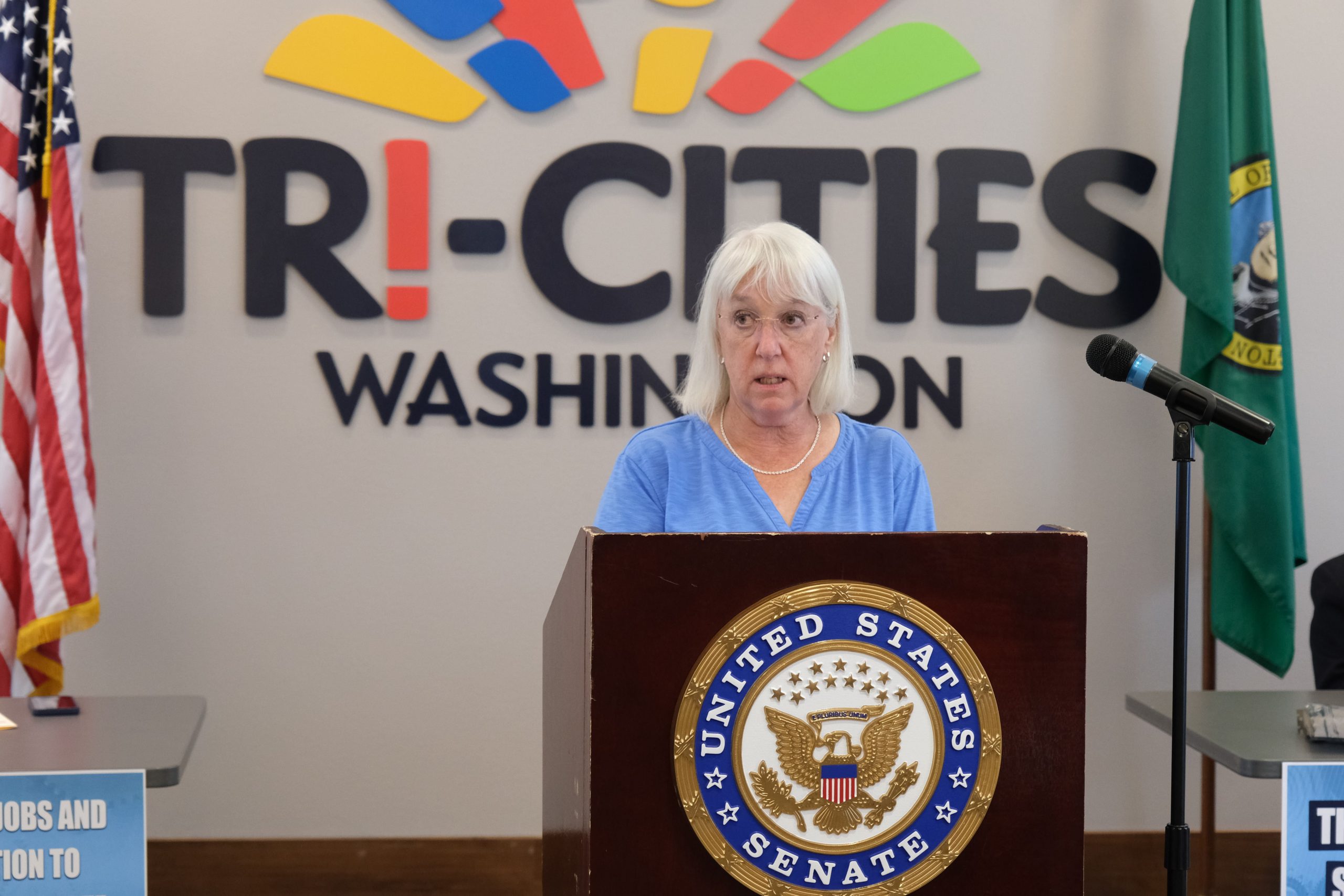Senator Murray: “Here’s the short and simple: leading the world in innovation also leads to good-paying jobs… As a voice for Washington state in the Senate, I’m going to keep working to make sure that research and innovation happens right here in the Tri-Cities.”
***PHOTOS OF THE EVENT HERE***
***VIDEO OF THE EVENT HERE***
(Kennewick, WA) – Today, U.S. Senator Patty Murray (D-WA), hosted a press conference with local research officials and business leaders to discuss the CHIPS and Science Act and how it will directly benefit the Tri-Cities region by driving major investments in research and innovation that will spur economic growth in Central Washington state.
Senator Murray was joined by Dr. Steven Ashby, Senior Vice President of Battelle; Steven Pawlowski, Vice President of Advanced Computing Solutions and Emerging Memory Solutions at Micron, an Idaho-based chip manufacturer which is investing $15 million into research at the Pacific Northwest National Laboratory (PNNL) because of the CHIPS Act; Karl Dye, the President and CEO of TRIDEC; and Diahann Howard, Executive Director of the Port of Benton and the Tri-Cities Research District.
The CHIPS and Science Act, signed into law earlier this month, is a critical investment in American manufacturing and especially in Washington state, which ranks in the top ten states in semiconductor workforce. Senator Murray also discussed the provisions she secured to boost the budget of the Department of Energy’s Office of Science, which funds labs like PNNL and others across the state. The CHIPS and Science Act also invests in the National Science Foundation, which funds research and development across Washington state and the country to keep America on the cutting-edge of technology and innovation in the next generation.
“Here’s the short and simple: leading the world in innovation also leads to good-paying jobs,” said Senator Murray. “The investments in research and the next generation of chip-making—that’s not just good news for PNNL—it’s GREAT news for the Port of Benton, for TRIDEC, and the entire region. As a voice for Washington state in the Senate, I’m going to keep working to make sure that research and innovation happens right here in the Tri-Cities.”
“Thank you, Senator Murray, for being an unwavering advocate for the Tri-Cities and our region – and for your role in helping make this legislation a reality,” said Diahann Howard, Executive Director of the Port of Benton and the Tri-Cities Research District. “This is a prime example of your understanding of our community’s vision beyond Hanford as we further transition from cleanup to clean energy technologies and jobs.”
“Senator Murray, thank you for your critical support for the Tri-Cities community. The Chips and Science Act is another example of your work to open new opportunities for the State of Washington and for our local economy,” said Karl Dye, President and CEO of TRIDEC. “Pacific Northwest National Lab is known globally as a leader in innovative applied materials science for research and development. Funding from this act will allow the lab to compete to increase efficiency in future chip designs.”
“We must rethink our computing paradigm so we can use artificial intelligence to speed scientific discovery and technological innovation,” said Dr. Steven Ashby, Battelle Senior Vice President. “Battelle researchers at Pacific Northwest National Laboratory are already working with partners, including Micron Technology, to address this challenge. They are collaborating on advanced memory chips and computer architectures for AI applications that will perform significantly better than is possible today.”
The recently passed CHIPS and Science Act will enable the Department of Commerce to provide $39 billion in incentives via loans, loan guarantees and grants to chip manufacturers, as well as to companies that do not make chips (e.g., chip equipment and materials suppliers). The bill also provides a 25 percent investment tax credit for semiconductor manufacturing equipment and the construction of semiconductor manufacturing facilities. Additional funds can support local workforce development efforts.
The CHIPS and Science Act also reauthorizes National Science Foundation’s Advanced Technological Education (ATE) program and doubles the budget for ATE from the current level of $75 million per year to $150 million per year. This program helps community and technical colleges improve and expand educational programs for technicians to work in high-tech STEM fields that drive the U.S. economy and secure good paying jobs in the Tri-Cities.
The bill will allow small and medium sized microchip manufacturers to expand and hire more workers, get products on the shelves faster, and lower costs on consumer electronics. When it comes to national security, the CHIPS and Science Act will decrease our reliance on foreign supply chains and make American manufacturing more competitive on the world stage. Overall, the legislation will help drive major investments in research and innovation, like Micron’s investment at PNNL, that will happen directly in the Tri-Cities communities.
###


